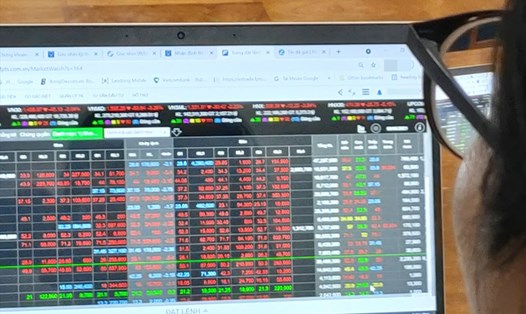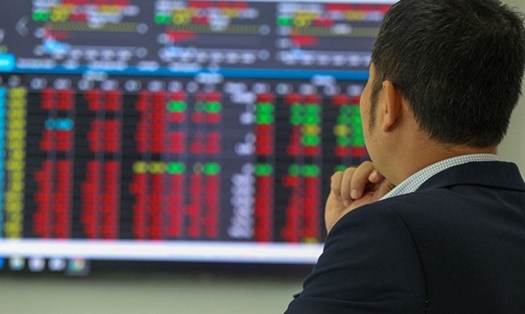Investors are waiting for the message from the Fed's 2-day meeting on January 25-26, 2022.
Investors do not expect the Fed to make a move to adjust interest rates this week, but it is likely that the rate increase will happen at the meeting taking place on the next two days of March 15-16. It is expected that the pumping will end in March and the interest rate will increase 3 times to 0.75%.
This is the first time the Fed has adjusted interest rates since the decision to lower interest rates to nearly 0% as soon as the COVID-19 outbreak in March 2020. The Fed has not raised interest rates since December 2018.
The US stock market immediately saw the strongest decline in the past year before the FED meeting, and it is not too surprising that the stock market fluctuated before the meetings, reflecting investors' expectations and concerns.
So how will this move by the Fed affect the Vietnamese stock market?
Speaking to Lao Dong newspaper reporters, Mr. Huynh Minh Tuan, Stock Expert, Founder of FIDT Asset Management Company, said: Although the FED has raised interest rates three times this year, the increase is still around and below 1%. I think this is still low, so it will not put too much pressure on Vietnam's exchange rate or interest rates. The exchange rate will be an extremely important factor this year because it strongly affects bank interest rates, inflation and foreign capital flows".
Discussing the story of the VND exchange rate in 2022, Mr. Huynh Minh Tuan said that the exchange rate will be stable and fluctuate in +-1% based on 3 reasons.
Firstly, Vietnam has always maintained a trade surplus state for many years.
Second, Vietnam is still an attractive destination for FDI capital. This not only helps promote trade growth but also has more FDI foreign currency flows into Vietnam.
Third, the FED is expected to continue to maintain interest rates below 1% in 2022, thereby reducing exchange rate pressure on major trading partners, including Vietnam.
The message of the State Bank of Vietnam is to tighten lending conditions in the real estate sector.
According to experts, this will have an impact on real estate businesses, especially companies with weak financial capacity. However, overall, this will be a positive point for the economy. Because when credit capital flow into real estate decreases, banks have to promote credit in other areas. When the credit supply becomes abundant like that, the trend will still be for banks to maintain low interest rates to stimulate credit demand in areas outside of real estate.
The Fed's tightening of monetary policy at this stage will not affect Vietnam much. Not only because the FED's interest rate is still low, but also because the current monetary and economic policy state of Vietnam is different from the US. However, fluctuations in the US stock market will more or less affect the psychology of Vietnamese investors, but this impact is only short-term, said Mr. Huynh Minh Tuan.










